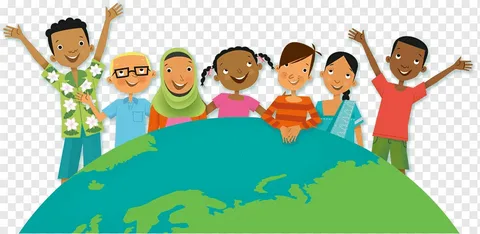Table of Contents
ToggleIntroduction
In a world rich with cultural diversity and individual uniqueness, establishing social equality is more crucial than ever. This article aims to uncover the essence of social equality and its importance in embracing unity amidst variety. We will unravel how societies can foster an environment of inclusivity, ensuring equal opportunities for all, regardless of their race, gender, or socioeconomic status. A harmonious society is the fruit of collective respect for diversity and an unwavering commitment to social equality. This exploration not only underscores the relevance of social equality in our present scenario but also guides us on how to make it a living reality in our societies.

Social Equality
Social Equality refers to a state where all individuals within a specific society or isolated group have the same status in certain respects. These aspects often pertain to civil rights, freedom of speech, property rights, and equal access to certain public goods and services. It may also include health equality and economic equality.
Historical Context
The concept of equality dates back to ancient civilizations, but its understanding and application have evolved. In ancient times, equality was predominantly aligned with the law of nature and was limited to individuals of the same class, race, or caste. The modern concept of social equality gained momentum during the Enlightenment era, emphasizing individual rights, freedom, and equality. The subsequent civil rights movements, women’s suffrage, and anti-slavery movements further expanded this notion, ensuring social equality encompasses all individuals, irrespective of their race, gender, class, or status.
The Pillars of Social Equality
Equality in Education
Education plays a pivotal role in fostering social equality. It’s a powerful tool that empowers individuals, opening doors to opportunities and economic mobility. Unfortunately, disparities in access to quality education persist, often mirroring and perpetuating existing social inequalities. Disparities may emerge in various forms, such as geographical accessibility, financial constraints, or quality of educational resources. To achieve equality, these disparities must be addressed head-on, creating an education system that truly provides equal opportunities for all.
Economic Equality
Economic structures significantly contribute to social equity. Economic equality doesn’t necessarily imply identical income for all, but rather, it points towards fair distribution of economic resources and opportunities. In other words, every individual should have an equal shot at economic success. This includes equal access to good jobs, fair wages, and opportunities for economic advancement. Equitable income distribution and unbiased employment opportunities are crucial for establishing economic equality, thereby contributing to social equality.
Social Justice
Social justice is an essential aspect of equality. It underscores the importance of a fair legal and societal system that respects all individual’s rights and ensures no one is denied justice because of their social standing. Social justice advocates for equal distribution of resources and opportunities, condemns discrimination, and upholds the rights of the marginalized. It serves as the backbone of equality, cementing the belief that everyone deserves equal treatment in both societal and legal contexts.
Relationships and Interactions
Intersectionality
Intersectionality is a theoretical framework that offers insights into how multiple social categories such as race, gender, and socioeconomic status intersect at an individual level, thereby affecting the experience of social equality or inequality. This perspective recognizes that individuals may face unique forms of discrimination and privilege based on the overlapping of their diverse identities. Understanding these intersections is key to addressing issues of social equality, as it sheds light on the multiplicity of experiences within marginalized communities, thereby challenging homogenizing views and highlighting the need for policies designed to cater to diverse needs and experiences.
Governmental Policies
Governmental policies play a significant role in shaping equality within a society. They have the power to either bridge or widen the gap between different social groups. Policies regarding education, healthcare, employment, and social welfare can create opportunities for marginalized groups, thereby promoting social equality. Conversely, discriminatory or unjust policies can perpetuate systemic inequalities, thereby undermining efforts towards achieving social equality.
Connecting Concepts
The achievement of social equality is a multi-faceted endeavor, deeply rooted in the intricate interplay of education, economics, and social justice. These pillars do not exist in isolation but rather interact synergistically, each reinforcing the other. For instance, equality in education can lead to improved economic prospects, thereby reducing income inequality. A fair economic structure, in turn, supports social justice by minimizing wealth-based disparities. Similarly, a society governed by social justice ensures equal educational and economic opportunities for all, regardless of their social standing.
Contextualizing Social Equality
Let’s consider the real-world example of the Scandinavian countries – Norway, Sweden, and Denmark. These nations are often lauded for their high levels of social equality, underpinned by robust governmental policies that emphasize equal opportunities. They boast well-funded, inclusive education systems, creating a level playing field for all citizens. Economically, these countries implement progressive taxation, which mitigates income inequality. They also have comprehensive social welfare systems that minimize poverty and homelessness.
In terms of social justice, these nations uphold high standards of human rights, ensuring that all individuals receive fair treatment under the law. This example illustrates how the harmonious interaction of education, economic structures, and social justice contributes to social equality. It also underscores the pivotal role of governmental policies in shaping a society where everyone, regardless of their background, has an equal opportunity to thrive.

Consistent Flow of Information
Building a Cohesive Narrative
A cohesive narrative is integral to understanding the complexity of equality. A narrative that smoothly transitions from the historical evolution of social equality to its pillars and the interplay among them, and further to its real-world implications is critical. This not only provides a comprehensive view but ensures the reader can connect the dots, seeing how each piece fits into the broader puzzle of social equality.
Gradual Buildup of Knowledge
The understanding of equality should be akin to constructing a building – laying one brick at a time. Initially, one must grasp the basic principles of social equality, followed by an exploration of its main pillars – equality in education, economic equality, and social justice. Then, the learner can delve into more nuanced concepts like intersectionality and the role of governmental policies. Real-world examples, like the Scandinavian countries, offer practical insights, reinforcing the theoretical concepts and facilitating a deeper understanding of social equality.
FAQs
What is social equality?
Social Equality is the concept that all individuals should have equal rights, opportunities, and access to resources and services, regardless of their social status, ethnicity, gender, or other characteristics.
What are the main pillars of social equality?
The main pillars of Social Equality include equality in education, economic equality, and social justice. These three elements intertwine to form the foundation of social equality.
How does Intersectionality relate to social equality?
Intersectionality is a framework that identifies how different social categories, such as race, gender, and socioeconomic status, overlap and influence an individual’s experience of equality or inequality. It highlights the uniqueness of discrimination faced by individuals with overlapping identities.
Conclusion
Social equality is a critical ideal that societies should strive for to embrace unity in diversity. This concept manifests itself in different forms such as equal education, economic equality, and social justice. Intersectionality underscores the profound influence of overlapping social identities on an individual’s experience of equality or inequality, thereby adding a layer of complexity to our understanding of equality.
Governmental policies hold immense potential in curbing systemic inequalities and promoting social equality, as exemplified by the Scandinavian countries. Achieving equality is a journey, one that requires a comprehensive understanding of its multifaceted nature and a commitment to tackling discrimination at all levels. It’s a testament to the beauty of a society that values and celebrates diversity while ensuring all its members enjoy equal rights and opportunities.




















